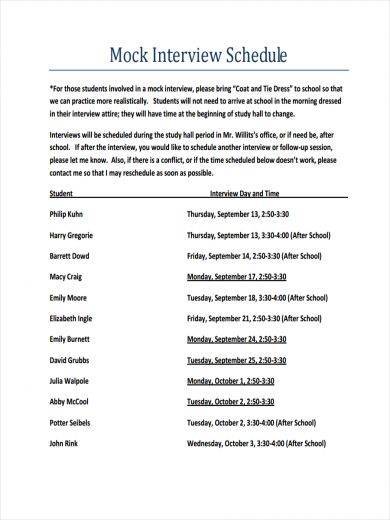
- SHOULD ISCHEDULE AN INTERVIEW WITH A OLLEGE HOW TO
- SHOULD ISCHEDULE AN INTERVIEW WITH A OLLEGE UPDATE
SHOULD ISCHEDULE AN INTERVIEW WITH A OLLEGE HOW TO
If you already have a good rapport with the interviewer, they might be able to offer you inside help on how to improve your application. For example, if you had an alumni interview, you might want to reach out to them and let them know that you were deferred. Stay engaged by demonstrating interest in the school. The school wants to make sure you are still interested in attending. Anything else that occurred recently and is relevant to your college application.Placing 4th at a state DECA competition, money raised for a nonprofit, progress on outside research work, etc.) Measurable or tangible results from an extracurricular activity, internship or job (i.e.New accolades from high school (i.e., Dean’s list, academic honors, etc.).

Here are some things on which you might consider updating the school:

A lukewarm recommendation will not help your application chances. Supplement your application with an additional letter only if you have a strong relationship with the recommender and they can add specific examples of your good qualities. You might want to consider asking someone who can talk about your qualities as a person. Are there any attributes or parts of your application that you feel weren’t explained well before? One of the biggest problems students often have is not showcasing enough of their personal qualities, and focusing solely on intellectual or academic pursuits. When asking for a new recommendation, try to identify the gaps in your application. You could ask a supervisor or manager at a job or internship, a coach or a teacher who can add something new to your application. You should consider sending an additional letter of recommendation.
SHOULD ISCHEDULE AN INTERVIEW WITH A OLLEGE UPDATE
If that is the case, you will need to update the college with that information. Even if your college list is already balanced, it is wise to give it a second read to make sure you want to move forward with the remaining applications.ĭepending on your individual situation, the school might not want to accept you until they’ve seen your first or second semester grades or additional test scores. A safety school-a school where your academic scores are above the average admitted freshman-is a smart, conservative idea to give yourself options. If your list is filled with only reach or match schools, consider adding a few safety schools. This is also the perfect time to reevaluate all the other colleges you want to apply to this application season. Now your options are open, and you can consider other schools. If you have changed your mind and think another school might be a better fit for you, this deferment could be a good thing. You are no longer bound by the strict rules of Early Decision applications and therefore obligated to attend if accepted. If you applied to a school during the early decision round, it likely was your top choice. By not acting, you could be taking yourself out of the application pile. Some colleges do not interview students before the senior year while others will interview juniors beginning in spring of junior year.įor more information about interviews, including admission office etiquette and questions to ask, see Chapter 11, “College Interviews” in College Admission: From Application to Acceptance, Step by Step.Some schools want you to confirm that you would still like to be considered during the regular decision round. Check the website of every school on your list to see when the admission office begins interviewing prospective students. But you can get a sense of what an interview is like only by doing one and it’s better to feel more comfortable with the process before senior year. Save the most important interviews- those at schools high on your list- for over the summer or early in senior year. You should not interview at your first- choice college at this time.

As you visit colleges over spring break, go through the process of interviewing or if there is a college near where you live, schedule an interview there if offered. Juniors, we recommend you do at least one interview, if possible, in the spring of junior year in high school.


 0 kommentar(er)
0 kommentar(er)
